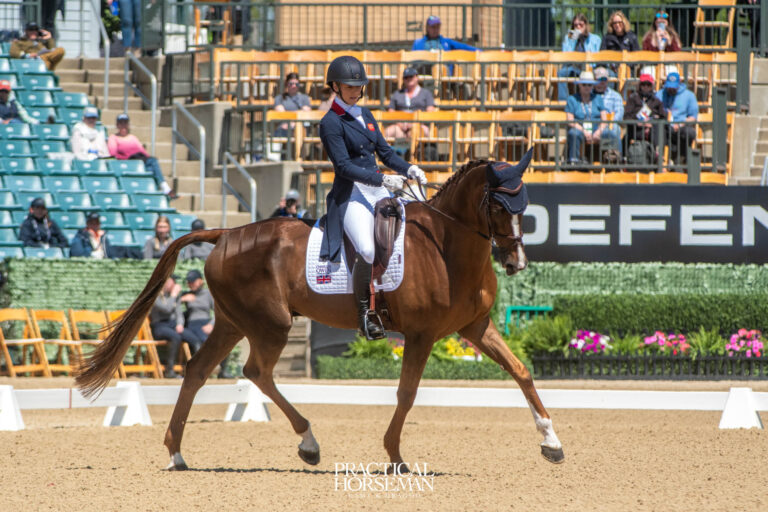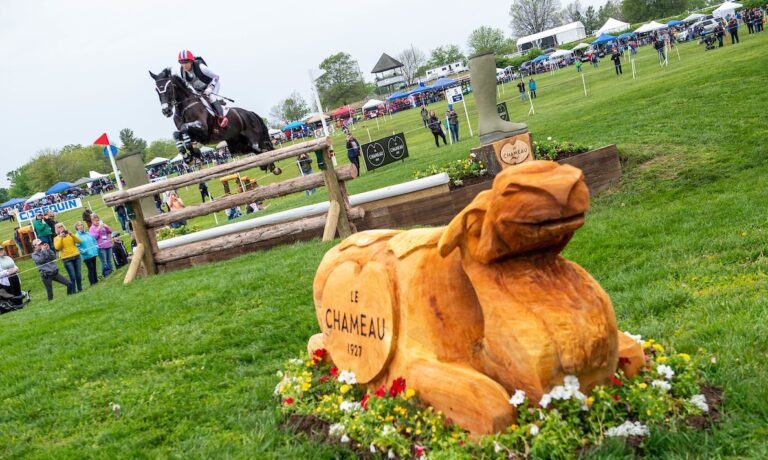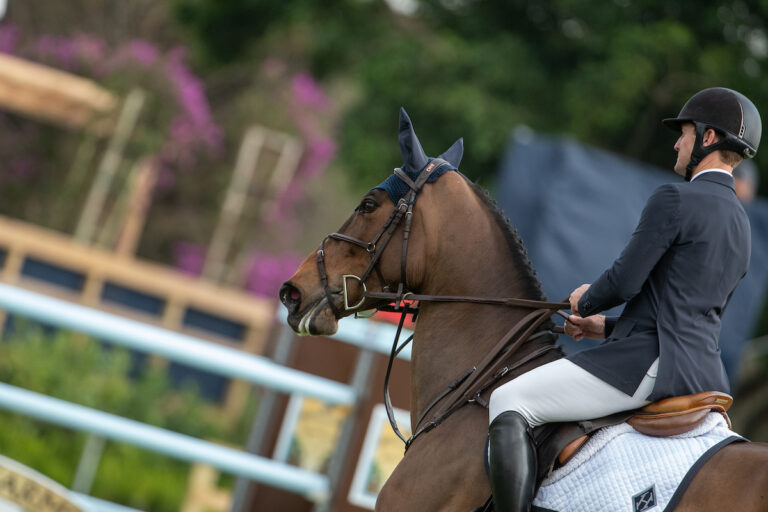March 31, 2016–A lifetime of devotion to eventing meant Roger Haller did it all–from designing the cross-country courses for the 1978 World Championships and the 1996 Olympics, to serving as a judge, technical delegate, organizer and perpetual proponent of the sport.
Roger, 70, who died last night of cancer, will be remembered not only for all he achieved, but also for the way he achieved it.
 Roger Haller at Rolex Kentucky | Nancy Jaffer
Roger Haller at Rolex Kentucky | Nancy JafferIt seemed as if there were never a question concerning the sport that stumped him, whether it involved a rule or a bit of history. The answer usually was delivered with a smile and a wonderful anecdote gleaned from more than a half-century in eventing.
He was the voice of reason in countless meetings and conference calls as he served over the decades first, the American Horse Shows Association and the U.S. Combined Training Association, then their successors, the U.S. Equestrian Federation and the U.S. Eventing Association, where he was inducted into the Hall of Fame in 2012.
Roger had a combination of skills and knowledge that were unique and always shared his wisdom, thinking of so many things that wouldn’t occur to others. Former U.S. Eventing president Brian Sabo said of Roger after watching him in action at committee meetings, “the guy just sees things from 30,000 feet that the rest of us don’t know could happen.”
“He was very caring and always had a sense of humor,” recalled lifelong friend Sally Ike, the U.S. Equestrian Federation’s managing director of licensed officials and education.
“He didn’t have an agenda in terms of his own promotion. He was not in it to make himself money or a name; he was really in it for the sport,” said Ann Haller, his wife of 20 years.
 Roger and Ann Haller | Nancy Jaffer
Roger and Ann Haller | Nancy JafferEventing was just beginning to find its legs in this country when Roger got involved. A cadet major with the Junior Essex Troop, a junior cavalry organization in New Jersey, he became an “A” pony clubber and was the force behind the founding of the Essex Horse Trials, which would become one of the premier events in the U.S.
It was held at his family’s Hoopstick Farm in Bedminster, N.J., where Roger began on the path for his future occupation as he built a course using the efforts of friends and volunteers. Denis Glaccum, who went on to be an event organizer himself, remembers “running like hell when the bees were after us” as he and Roger worked on constructing a fence in the woods before the first Essex competition.
Sally reminisced that volunteers and Roger worked until after dark building a ditch “that would be jumped the very next day,” on a course that already was open for walking.
From there, Roger’s involvement with eventing became even deeper. He rode with then-coach Stefan von Visy at the U.S. Equestrian Team, and was long-listed for the 1974 World Championships with Golden Griffin.
At the Badminton 4-star in England the next year, he realized a dream by taking part, but it was dashed the day after the dressage phase when weather conditions caused the rest of the event to be canceled. Golden Griffin went on to be sold to Bruce Davidson, who had great success with him, while Roger turned to the non-riding side of eventing.
Until the early 1990s, Roger ran the Haller Testing, a company that had been run by his late father, Eliot, but his heart wasn’t into office work. When Atlanta put in the bid for the 1996 Olympics, he became involved with eventing full time. In Atlanta, he built separate courses for the team and individual competitions, as it was the first time the latter had been held. He also designed the roads and tracks segments with an eye toward them becoming the basis for lower level events at the Georgia International Horse Park in the future.
Whatever he did, he showed the same level of commitment and seriousness, whether he was designing something for a local event or an international competition. Roger was in demand for designing and officiating around the world, but he had a real link to Latin America, serving as secretary-general of the Pan American Equestrian Confederation.
Although riding had long taken a back seat to his other duties in eventing, Ann said Roger still showed his skill whenever he happened to get in the saddle. On a trip to New Zealand where he was giving seminars, he had to get on a young event horse so photos could be taken for a newspaper. While aboard, Roger executed a flying change, then took the horse over six cross-country fences in a row as his wife and bystanders looked on, impressed.
In addition to his wife, Roger is survived by his sister, Barbara Pace, in Arizona. His mother, Jean Haller Reid, died last year. Services for Roger will be held Wednesday at the historic Old Church in Oxford, Ga. A memorial gathering is being planned for April 29, the Friday of Rolex Kentucky. In lieu of flowers, contributions may be made to the U.S. Equestrian Team Foundation, Box 355, Gladstone, N.J. 07934.










